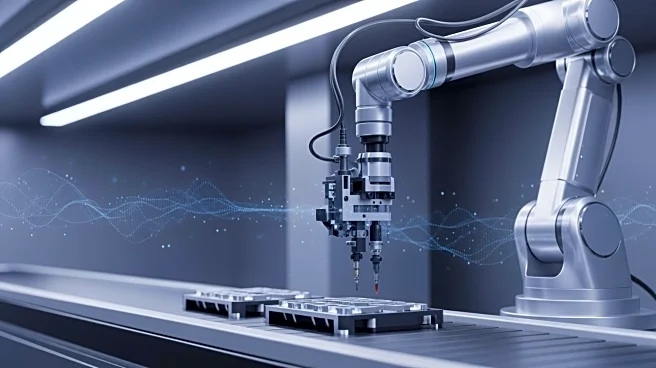What's Happening?
Artificial Intelligence (AI) is increasingly being integrated into manufacturing processes, transforming operations by automating tasks and improving decision-making. ECI, a company specializing in manufacturing solutions,
is focusing on dispelling myths around AI and demonstrating its benefits for small and mid-sized manufacturers. AI tools, such as ChatGPT, are being used for predictive maintenance and real-time quality control, helping manufacturers address challenges like labor shortages and high costs. ECI is embedding AI into its software to streamline workflows without causing disruption or requiring extensive training.
Why It's Important?
The integration of AI in manufacturing is significant as it addresses critical industry challenges, such as labor shortages and high operational costs. By automating tasks and improving product quality, AI can enhance competitiveness and efficiency in the manufacturing sector. This technological advancement allows manufacturers to increase output while reducing costs, potentially leading to economic growth and job creation. Companies that adopt AI can gain a competitive edge by improving customer service and product quality, which is crucial in a global market.
What's Next?
Manufacturers are expected to continue integrating AI into their operations, focusing on strategic implementation rather than short-term solutions. As AI becomes more embedded in manufacturing processes, companies will likely invest in organizing and managing data centrally to maximize AI benefits. The ongoing development of AI capabilities by companies like ECI suggests a future where AI is a standard part of manufacturing workflows, potentially leading to further innovations and efficiencies in the industry.
Beyond the Headlines
The ethical implications of AI in manufacturing include concerns about job displacement due to automation. However, AI can also create new opportunities for skilled workers in technology and data management. The cultural shift towards AI-driven processes may require changes in workforce training and education to ensure employees can adapt to new technologies. Long-term, AI could redefine manufacturing roles and lead to a more tech-focused industry landscape.









